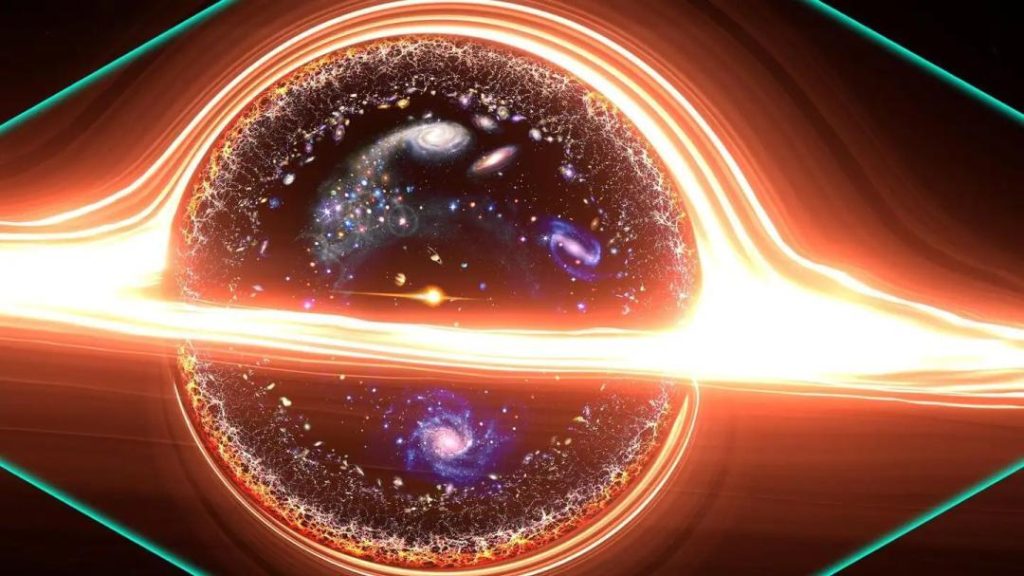
Universe may have originated from a black hole not Big Bang: Study
The origin of the universe has long been a topic of debate among scientists and scholars. For decades, the Big Bang theory has been the most widely accepted explanation for the birth of our universe. However, a new study has challenged this notion, suggesting that the universe may not have begun with a Big Bang at all, but rather from a black hole.
The study, published in the journal Physical Review Letters, proposes that the Big Bang was not the start of everything, but rather the outcome of a gravitational crunch or collapse that formed a very massive black hole. In other words, the universe may have originated from a black hole, and the Big Bang was simply the “bounce inside it” that followed.
This revolutionary idea challenges the conventional wisdom that the universe began as a singularity, an infinitely hot and dense point, around 13.8 billion years ago. Instead, the researchers suggest that the universe may have been born from a black hole that existed in a higher-dimensional space, known as the “bulk.”
According to the study, the black hole was so massive that it collapsed under its own gravity, causing a massive amount of energy to be released in the form of a gravitational wave. This energy would have then created a “bubble” of space-time that expanded rapidly, giving rise to the universe as we know it today.
The researchers behind the study used complex mathematical models to simulate the behavior of black holes in the early universe. They found that under certain conditions, a black hole could collapse in such a way that it would create a new universe, rather than simply disappearing.
“This is a very exciting idea,” said Dr. Ranga-Ram Chary, a researcher at the California Institute of Technology and one of the authors of the study. “It challenges our current understanding of the universe and opens up new possibilities for understanding the origins of the universe.”
So, what are the implications of this new theory? If the universe did originate from a black hole, it could have significant implications for our understanding of the nature of space and time. It could also challenge our current understanding of the origins of the universe and the role of black holes in the cosmos.
The study’s findings are based on complex mathematical models and simulations, and while they are intriguing, they are not without their challenges. For one, the models assume that the black hole is so massive that it creates a new universe, but this is still purely theoretical and has yet to be observed.
Additionally, the study’s findings are still subject to peer review and further testing. While the researchers are confident in their results, they acknowledge that more work is needed to confirm their theory.
Despite these challenges, the study’s findings are an exciting development in the field of cosmology. They offer a new perspective on the origins of the universe and the role of black holes in the cosmos. As scientists continue to study the universe and the mysteries of black holes, we may uncover new clues that shed light on the origins of the universe and the nature of space and time.






